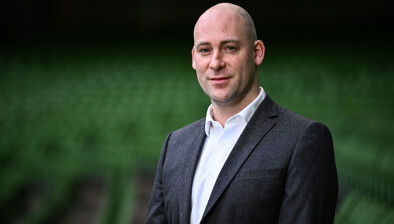High Court: Protective costs application refused for disabled individuals seeking extra year of schooling from the State

The High Court has refused an application for protective costs orders brought by two disabled individuals seeking a further year of education from the Minister for Education. Both applicants had applied for an extra year of special schooling in order to make up for the significant amount of time missed during the Covid-19 pandemic.

About this case:
- Citation:[2023] IEHC 80
- Judgment:
- Court:High Court
- Judge:Ms Justice Marguerite Bolger
Delivering judgment in the case, Ms Justice Marguerite Bolger held that a protective costs order was an exceptional remedy and that neither legal team could identify a case involving disability law where such an order had previously been made. Further, the court held that a protective costs order would not ordinarily be granted when the applicants were pursuing private interests, notwithstanding the general public importance claimed.
Background
The two applicants were 19-year-old men with significant intellectual and learning disabilities. Mr M had autism spectrum disorder, global developmental delay and epilepsy. Mr S had autism spectrum disorder, an intellectual disability and cystic hygroma. As a result of Covid-19 restrictions, their schooling had been limited during 2020 and 2021.
Accordingly, the men (by their mother and father respectively) requested a further year of education from the Minister for Education, notwithstanding that they were over the age of 18. The Minister refused the request and judicial review proceedings issued. Prior to the hearing for interlocutory relief in July 2021, it transpired that all places for special education had been filled for the next year. As such, the proceedings were rendered moot.
However, the applicants wished to continue the proceedings, citing the general public importance of the issues raised. The essential claim was that the applicants were being denied a fourteenth year in school due to their additional needs without an adequate consideration of their respective situations.
Since the applicants could no longer benefit personally from the proceedings, they brought an application for a protective costs order where they would not be liable to pay the State’s costs if they lost the case. The applicants submitted that they would have to discontinue the proceedings if the order was not made as they did not have to means to pursue the litigation.
It was claimed that there were serious issues in the proceedings regarding i) the application of the Education Act 1998 to persons with special needs, ii) the validity of circulars and guidelines to determine the rights of students and iii) the discrimination against persons with special needs arising from the guidelines.
In response, the Minister submitted that a protective costs order should only be made in exceptional circumstances (see Friends of the Curragh Environment Ltd v Trustees of the Turf Club [2009] 4 IR 451). It was also said that the applicants did not satisfy the onerous test for such an order (see Village Residents Association Ltd v An Bord Pleanála [2000] 4 IR 321).
It was said that there had never been a decision to challenge and that the applicants were instead attempting to challenge the Rules for National Schools in the abstract. It was not permissible for the court to issue an advisory opinion where there was no live factual dispute (see Lofinmakin v Minister for Justice, Equality and Law Reform [2013] 4 IR 274).
High Court
Ms Justice Bolger began by stating that a protective costs order could be ordered where certain criteria were satisfied, but that this would only be in exceptional circumstances. Considering the Village Residents Association case, the court noted that public interest arguments could not normally be used when dealing with the costs of ordinary inter partes civil litigation. This was emphasised in Rosborough v. Cork County Council & ors [2008] 4 IR 572, where Clarke J. described the jurisdiction as only “insulating a plaintiff/claimant who brings public interest proceedings”.
The court observed that the applicants did not have any ongoing private interest in the proceedings due to mootness, but outlined that the proceedings had begun as private interest litigation against the State. The issues of locus standi and mootness remained issues requiring determination, the court said.
Overall, the court was “not satisfied that proceedings which began life seeking relief personal to the applicants, as well as more general relief, can evolve into public interest litigation to which the exceptional jurisdiction of the protective costs order may be applied”. The case law provided that protective costs orders only applied to a pure public interest claim, the court said.
As the case was not a pure public interest case, the court determined that it would refuse the application. However, Ms Justice Bolger went on to consider the other grounds which were asserted by the applicants.
It was noted that the court was required to be satisfied of the merits of the case “following short argument” (Village Residents Association Limited). The court outlined that the leave application for the proceedings had not yet occurred and would likely take two days due to complex issues of mootness and standing. For the purpose of the protective costs order, the court was not satisfied on the merits of the case.
The court held that the 1998 Act did not seem to encompass the generalised right for all persons to special needs education. Rather, it was classed in terms of individual rights. Further, the 1998 Act did not confer a right to a particular education, only an “appropriate” education.
Assessing an “appropriate” education would involve an assessment of the individual student’s needs. The court said that it was difficult to see how this assessment could take place in a hypothetical factual matrix, which was now contended by the applicants.
The court was not satisfied that that the evidence demonstrated that the Minister abandoned students over 18 which might establish a breach of the 1998 Act. Such a breach could not be established without an assessment of the appropriate education for the individual student. Further it would need to be shown why the Minister’s potential future involvement in providing educational support as the students move to a HSE service did not satisfy the requirements of the 1998 Act.
The court rejected the assertion that the Minister had exercised the educational scheme in an arbitrary manner, noting that section 7(b) of the 1998 Act confirmed that it was for the Minister to determine national education policy and that the applicants were not claiming a right to primary education beyond the age of eighteen.
Conclusion
Accordingly, the court held that it would refuse the application for protective costs orders.
J.S. v. Minister for Education [2023] IEHC 80











